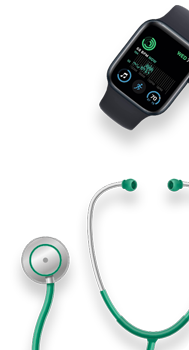 There are many reasons 58 year-old LeVern Nunley decided to participate in an HMG Clinical Research study. As an insulin-dependent diabetic, the most obvious reason is that he hoped the trial medication might perhaps be a pathway to bring his blood sugar levels under better control.
There are many reasons 58 year-old LeVern Nunley decided to participate in an HMG Clinical Research study. As an insulin-dependent diabetic, the most obvious reason is that he hoped the trial medication might perhaps be a pathway to bring his blood sugar levels under better control.
Yet, according to Nunley, beyond the benefits he could possibly have hoped to gain, one overarching result has been that of a feeling of personal satisfaction in simply doing something for the “good” of others.
“I guess the best part of my experience has been the feeling that by taking part in this study, whether it benefits me or not, I’ve made a contribution to people down the line who acquire diabetes and may be able to use this medication,” explains Nunley. “Maybe I’ve broken some ground.”
According to HMG Clinical Research Director Joyce Caldwell, RN, CCRC, Nunley is doing just that.
“It’s patients, just like Mr. Nunley, who are doing incredible good for those around them, and, for countless individuals they will never know,” explains Caldwell who has directed HMG’s Clinical Research since its inception in 1996. With more than 100 active clinical studies, HMG’s clinical research efforts are the most comprehensive in the Tri-Cities Region.
29 year-old Brandon VanHuss agrees. Both he and his wife, Penny, participated in a 22 month study within HMG.
“Clinical trials are a good thing,” begins VanHuss. “Being a part of this study has allowed me to think that eventually, down the line, if this medication does come out, it could be something that can help people. It’s really been a good feeling knowing that I was helping.”
According to HMG Founder Jerry L. Miller, MD, it’s because clinical trials benefit so many that HMG is willing to participate.
“It’s good for so many reasons,” begins Dr. Miller. “Often, it gives you a new approach to many chronic conditions. And, it’s good for patients in that it gives them constant engagement. The attentive care they receive is incredibly thorough.”
Caldwell says that, due to the level of care a patient receives, often the HMG clinical research team identifies health issues and concerns that the patient never knew they had.
“I’ve had patients tell me that they owe their life to a clinical trial,” explains Caldwell, who says her team has identified everything from heart murmurs to cancer.
HMG primary care provider Ed McBride, MD, who serves as an HMG clinical research principal investigator says he has seen the benefits first-hand.
“Clinical research allows for excellent healthcare,” begins McBride. “Patients are provided wonderful follow up, receiving not only their medications but also reimbursement for their time in office visits, lab work, and diagnostics.”
Dr. Miller adds that it’s the close monitoring of trial participants that produces the greatest “good” for their health.
“They are seen very regularly. Their blood is monitored as well as other physical findings and parameters. They receive excellent education and training,” explains Dr. Miller. “The attentive care they receive is good for attention to chronic illnesses in general.”
“We have a very close relationship with our patients. We do a lot of education, a lot of encouragement and a lot of hand-holding,” adds Caldwell. “They become our friends.”
Typically, the average study involves a patient commitment of approximately one year, with study visits ranging from weekly to bi-weekly. During these visits (averaging 15 minutes to an hour), patients receive attentive care by experienced clinical research coordinators (directed by an HMG physician principal investigator). All clinical research team members adhere to the rigorous guidelines established by the Institutional Review Board.
Clinical study participants are compensated for their time by the trial sponsor (compensation ranges from $10 to $100 per visit, depending upon the time commitment and type of visit) and receive all trial-related medication and monitoring as a complimentary safety measure.
For more information or to learn of HMG Clinical Research trials, please talk with your HMG primary care provider or call HMG Clinical Research at (423) 578-1506.
A Drug’s Long Road to Market
A great deal of advance research is conducted before a drug is ready for the lengthy clinical trial phases of development. First, potential drugs have to be discovered, purified, characterized, and tested in labs (in cell and animal studies) prior to ever beginning the clinical trial process. On average, a new cancer drug has at least six years of research behind it before it even makes it to the clinical trial phase. Then, once there, on average about eight years pass from the time the drug enters the clinical trial process until it receives approval from regulatory agencies for sale to the public.
Patient Safety Always First
Ever wonder what it would be like to consider participating in clinical research? LeVern Nunley will tell you.
“Sure, I was a little skeptical at first,” says Nunley, before he continues with a warm smile and a twinkle in his eye. “But I never felt like a guinea pig.”
Nunley says his initial concerns quickly dissipated.
“After I fully realized that they were primarily concerned with my overall health and that they were not going to purposefully do anything that would jeopardize my health, my apprehension went away,” attests Nunley.
“It’s certainly not just about the medication,” affirms Caldwell. “We’re patient advocates and the patient always comes first. If the patient needs extra care when they come in for their appointment, we make sure we give them the time they need.”
Today, the HMG Clinical Research team consists of more than two dozen professionals, including RNs, LPNs, Medical Assistants and Medical Laboratory technicians. HMG actively participates in Phase II, Phase III and Phase IV clinical research studies.
“I will put our team up against any in their performance, in their objectivity, and in their ability to follow protocol,” attests Dr. Miller. “In the 12-plus years we’ve been doing clinical trials—and we’ve done more than 500 of them—we have never had a violation that would warrant any type of sanction.”
Dr. McBride says he’s “very comfortable with the entire process,” most notably the informed consent where a patient is explained the key facts involved in a clinical trial before deciding whether or not to participate.
“Patients are screened very carefully before entering a trial and have a thorough understanding of the informed consent. Then, if, during a study, any red flags are ever raised, the patient is promptly removed from the study. No matter what, patient safety comes before the study, always.”
Since HMG Clinical Research’s inception, more than 1,800 HMG patients have participated in clinical research studies.
A Reputation of Excellence
With leading pharmaceutical partners such as Merck, Hoffman LaRoche, Pfizer and Glaxo-Smith-Kline, HMG Clinical Research has developed a reputation of excellence, with pharmaceutical partners eager to engage in additional studies.
“We are a robust group for clinical trials,” boasts Dr. Miller, adding that Holston Medical Group is very particular as to the studies they will accept.
“Trials must meet our objectives. We evaluate each trial in advance. Is this study good for our patients? Is it good for science? It’s questions like these that we must consider before agreeing to participate in a trial.”
Dr. Miller, who says he is quick to turn down trials that fail to meet HMG’s established criteria, believes clinical trials have “somewhat characterized” Holston Medical Group.
“Holston Medical Group is well known across the nation for excellence in clinical studies,” explains Dr. Miller. “Why? Because of the quality of our team and our adherence to best practices. Clinical research is an exact science.
“There’s no room for variation. You have to dot the i’s and cross the t’s and that’s exactly the way our team achieves excellence.”
Interested in Participating in a Trial?
HMG is currently actively enrolling participants for a variety of trials, including:
Type II Diabetes (multiple trials)
Osteoarthritis (multiple trials)
Gastroenterology
Cardiac outcome
Pediatric vaccine
To learn whether you meet the protocols for participation, please talk with your HMG primary care provider or call HMG Clinical Research at (423) 578-1506.




